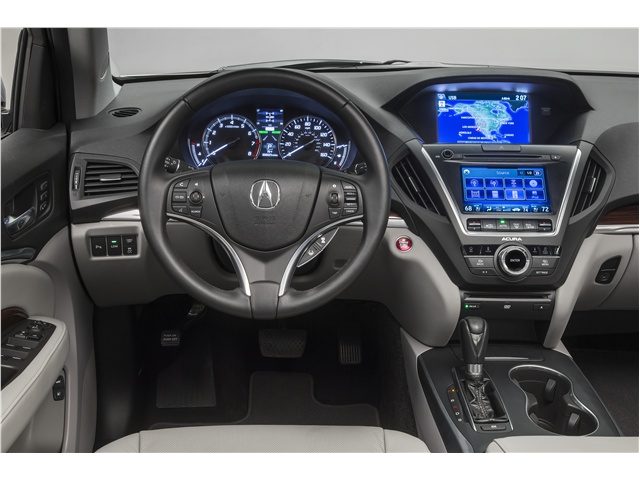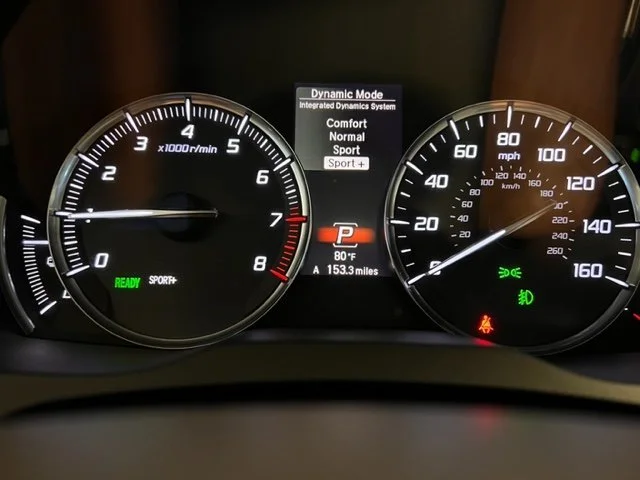Certain Acura MDX SUVs have experienced sudden engagement of the electric parking brake system while the car is still moving due to malfunctions. This may be hazardous and result in a loss of vehicle control. How to fix the Acura MDX electric parking brake problem?
When owners encounter this troublesome parking brake behavior, there are a few possible solutions they might attempt. The first step is to drive the vehicle to an Acura dealership, where experts will perform software updates and system checks. In some circumstances, defective sensors or modules may require replacement. Resetting and adjusting the parking brake controller can also help to overcome issues.
For persistent problems, a full diagnostic of the entire electronic braking circuitry may be necessary. Finally, upgrading to a newer model year MDX brake control module will resolve the random engagement issue. The electric parking brake should now function consistently and safely after being repaired.

Contents
How To Fix Acura MDX Electric Parking Brake Problem?
Here are some potential solutions for Acura MDX electronic parking brake problems:
Manual Release
Check the owner’s manual for information on manually releasing the electric parking brake. The handbook typically includes a manual release lever or method.
Check the Battery
Check the vehicle’s battery to ensure it is in good condition. Weak or dead batteries might cause issues with the electric parking brake system.
Reset the System
Reset and calibrate the parking brake controller. Disconnecting the controller’s battery cable for 30 minutes causes it to do an auto-reset upon reboot. Calibration after this can correct software flaws.
Update Software
For a software update, bring it to the dealership. Updates to the parking brake controller software can often cure the problem. Dealer service bulletins describe how to carry out these changes.
Use Diagnostic Tool
To find trouble codes pertaining to the electronic parking brake system, use a diagnostic tool. This may shed light on particular problems. Examine the electronic brake circuitry in great detail. Use a scan tool to look for issues with the solenoids, wire harness, and other parts. The parking brake may be acting erratically due to a malfunctioning or short damaged part.
Inspect Brake Components
Examine the components of the electric parking brake for any obvious wear or damage. This covers the brake actuator as well as the cables and connectors. Use a scan tool to look for issues with the solenoids, wire harness, and other parts. The parking brake may be acting erratically due to a malfunctioning or short damaged part.
Lubricate the braking mechanisms. Parking brake components might become stuck over time if they are not lubricated. Proper lubrication contributes to smooth operation.
Reasons For Acura MDX Electric Parking Brake Problem
Here are some possible reasons why the electric parking brake system may fail in specific Acura MDX models:

Software/Controller Glitch
A defect or flaw in the parking brake controller software may cause the brake to be engaged accidently. The dealer’s software updates usually address this issue.
Faulty Sensors
Sensors that monitor transmission gear, brake pedal position, vehicle speed, and so on may produce false input, causing the brake to be applied.
Worn Brake Components
Over time, increased friction from wear may render engagement/disengagement unreliable.
Battery Issues
Weak or depleted vehicle batteries can impair the performance of electronic systems, such as the electric parking brake.
Sensor Problems
Malfunctioning sensors responsible for sensing brake position or parking brake engagement might cause system errors.
Failed Brake Actuator/Motor
If internal components fail, the electronic motor that controls the tension of the parking brake caliper may engage at random.
Moisture/Corrosion
Water entry into connectors or modules due to weather exposure may result in intermittent connections.
Environmental Factors
Extreme temperatures, dampness, and other climatic factors can cause electrical and mechanical components to deteriorate.
Manufacturing Defects
In some circumstances, manufacturing flaws or quality control difficulties might cause problems with specific electric parking brake system components.
Lack Of Maintenance
Inadequate maintenance or failure to perform routine checks on the electronic parking brake system might cause it to deteriorate over time.
User Error
Incorrect use or manipulation of the electric parking brake by the driver, such as applying too much force or releasing it while the vehicle is moving, can cause problems.
How Do You Reset The Electronic Parking Brake On Acura MDX?
Ensure Safety
- Park your Acura MDX on a level surface.
- Put the transmission into park (automatic) or gear (manual).
- Turn the ignition off.
Locate the Parking Brake Switch
Most Acura MDX vehicles have an electronic parking brake switch near the center console, generally adjacent to the gear selector.
Press and Hold the Switch
- Grab the electronic parking brake switch and press it down.
- Turn on the ignition without starting the engine while still holding the switch. Hold the switch down until you notice an indicator or message on the instrument cluster saying that the electronic parking brake has to be reset.
Wait for the Reset
Holding the switch in place will finish the reset operation. This could require a few moments.
Release the Switch
Upon completion of the reset, disconnect the electronic parking brake switch.
Check for Indicator Lights
Turn on the engine and look for any parking brake-related warning lights on the instrument panel. Make that the parking brake electronically engages and disengages correctly.
Test the Parking Brake
To make sure the electronic parking brake is operating properly, activate and disengage it.
If the above methods do not address the problem, contact an authorized Acura dealership for assistance. Furthermore, if there are any recurrent problems with the electronic parking brake, have the car evaluated by a certified technician.